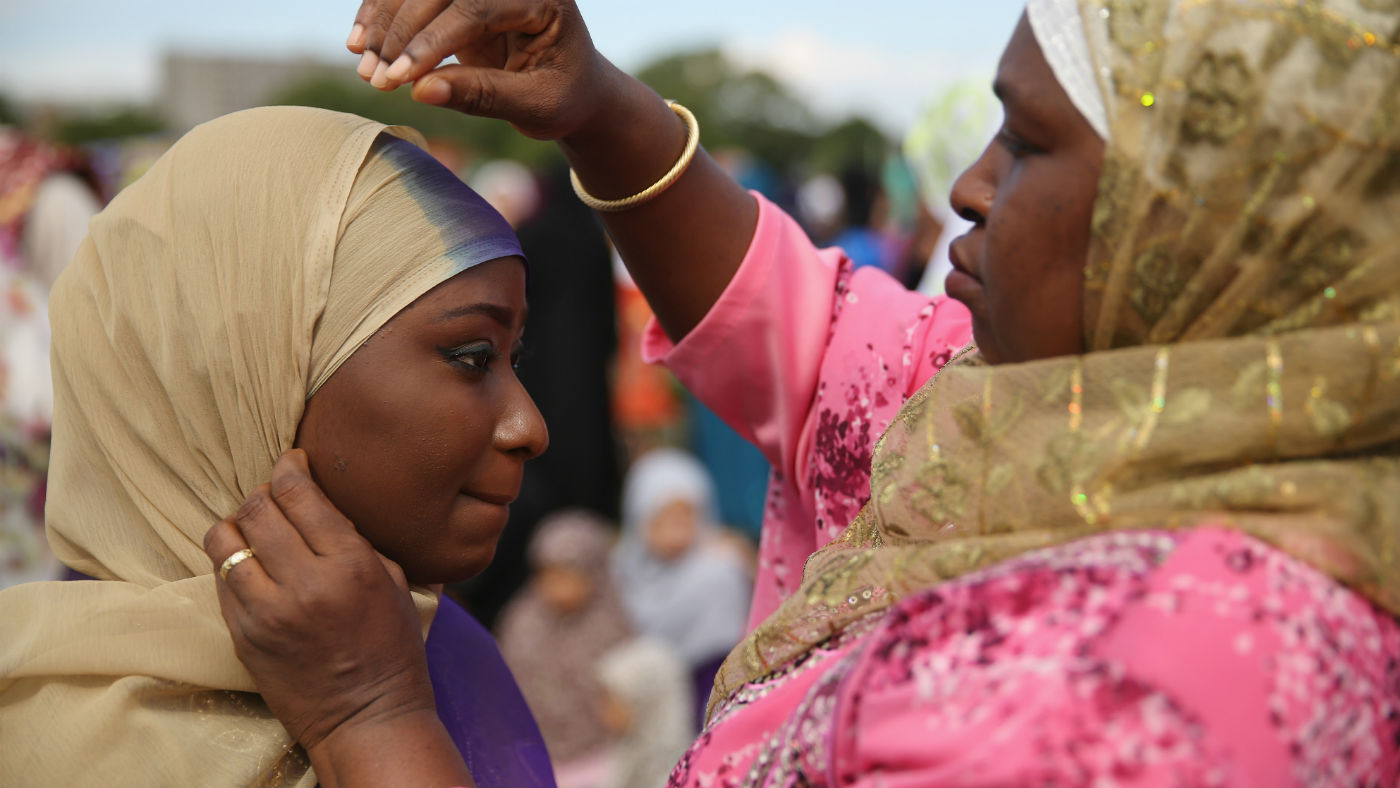World Hijab Day 2018: women across the world don Islamic headscarf
Muslims and non-Muslims encouraged to join initiative to reduce negative stigma

A free daily email with the biggest news stories of the day – and the best features from TheWeek.com
You are now subscribed
Your newsletter sign-up was successful
Today is World Hijab Day, a worldwide initiative to fight negativity and discrimination against women who wear the Islamic head covering.
Women from 190 countries are expected to participate in the event, which encourages Muslims and non-Muslims alike to experience life as a hijabi (a woman who wears the hijab).
World Hijab Day is the brainchild of Nazma Khan, a US citizens who moved from Bangladesh to New York City with her family at the age of 11.
The Week
Escape your echo chamber. Get the facts behind the news, plus analysis from multiple perspectives.

Sign up for The Week's Free Newsletters
From our morning news briefing to a weekly Good News Newsletter, get the best of The Week delivered directly to your inbox.
From our morning news briefing to a weekly Good News Newsletter, get the best of The Week delivered directly to your inbox.
Khan told Al Jazeera that the prejudice and hostility she encountered as a hijab-wearing woman ramped up following the 9/11 attacks.
“I was chased, spit on, surrounded by men, called a terrorist, Osama bin Laden,” she said.
After discussions with other Muslim women who had undergone similar experiences, in 2013, Khan launched the first World Hijab Day.
The annual event expresses solidarity with Muslim women who wear the hijab, which has become a flashpoint for tensions between secular societies and religious Muslim communities within them.
A free daily email with the biggest news stories of the day – and the best features from TheWeek.com
In addition to a spate of “burka bans” targeting the full-face veil, several countries, including France, Egypt, Syria and Turkey, have seen social and legal debates about the place of the hijab in public life.
A report last year by the Council on American-Islamic Relations found that out of more than 350 Islamophobic hate crimes in the US in the first half of 2017, “15% described a Muslim woman’s headscarf as a trigger”, Mic reports.
Women of other faiths or none are also encouraged to don a headscarf for the day to gain insight and empathy for women who wear the hijab.
"By walking in my shoes for one day on February 1, women would see that I am no different from them,” Khan said.
Supporters of the initiative say it is does not push a certain interpretation of Islam or pressure Muslim women to cover their heads, but simply provides visible support and positivity to counter the stigma which surrounds the hijab in non-Muslim societies.
However, the event has been criticised within the Muslim community as giving succour to hardliners who see head coverings a mandatory element of Islam.
In 2016, Maajid Nawaz, founder of counter-extremist thinktank Quilliam, wrote in The Daily Beast that World Hijab Day ignored the complexities surrounding Islamic modesty codes which are enforced on millions of women, whether through legal or social pressure.
Nawaz added that progressive non-Muslim women were inadvertently playing into this agenda, urging them to remember that “their counterparts in Saudi Arabia, Iran, and under Taliban or Isis rule also require our solidarity in taking their hijabs off”.
-
 Local elections 2026: where are they and who is expected to win?
Local elections 2026: where are they and who is expected to win?The Explainer Labour is braced for heavy losses and U-turn on postponing some council elections hasn’t helped the party’s prospects
-
 6 of the world’s most accessible destinations
6 of the world’s most accessible destinationsThe Week Recommends Experience all of Berlin, Singapore and Sydney
-
 How the FCC’s ‘equal time’ rule works
How the FCC’s ‘equal time’ rule worksIn the Spotlight The law is at the heart of the Colbert-CBS conflict
-
 Epstein files topple law CEO, roil UK government
Epstein files topple law CEO, roil UK governmentSpeed Read Peter Mandelson, Britain’s former ambassador to the US, is caught up in the scandal
-
 Iran and US prepare to meet after skirmishes
Iran and US prepare to meet after skirmishesSpeed Read The incident comes amid heightened tensions in the Middle East
-
 Israel retrieves final hostage’s body from Gaza
Israel retrieves final hostage’s body from GazaSpeed Read The 24-year-old police officer was killed during the initial Hamas attack
-
 China’s Xi targets top general in growing purge
China’s Xi targets top general in growing purgeSpeed Read Zhang Youxia is being investigated over ‘grave violations’ of the law
-
 Panama and Canada are negotiating over a crucial copper mine
Panama and Canada are negotiating over a crucial copper mineIn the Spotlight Panama is set to make a final decision on the mine this summer
-
 Why Greenland’s natural resources are nearly impossible to mine
Why Greenland’s natural resources are nearly impossible to mineThe Explainer The country’s natural landscape makes the task extremely difficult
-
 Iran cuts internet as protests escalate
Iran cuts internet as protests escalateSpeed Reada Government buildings across the country have been set on fire
-
 US nabs ‘shadow’ tanker claimed by Russia
US nabs ‘shadow’ tanker claimed by RussiaSpeed Read The ship was one of two vessels seized by the US military